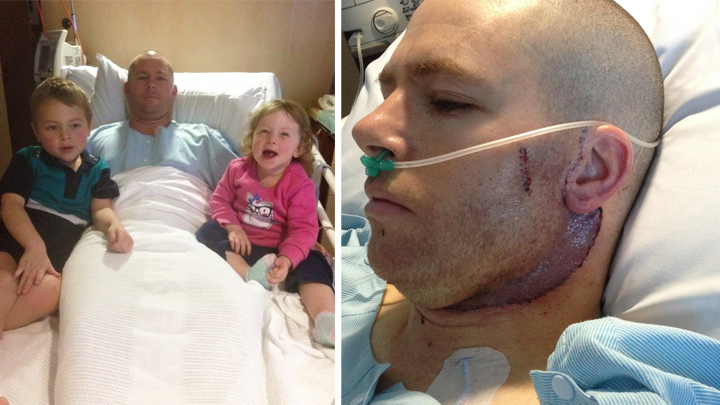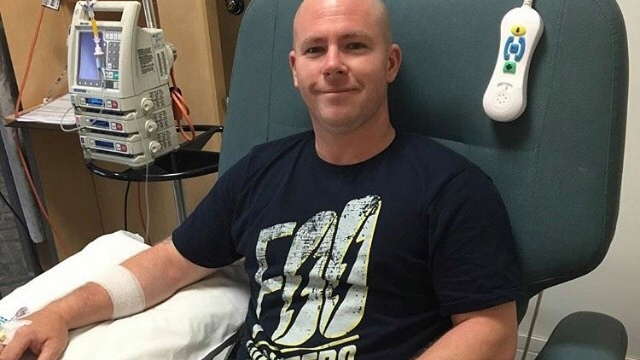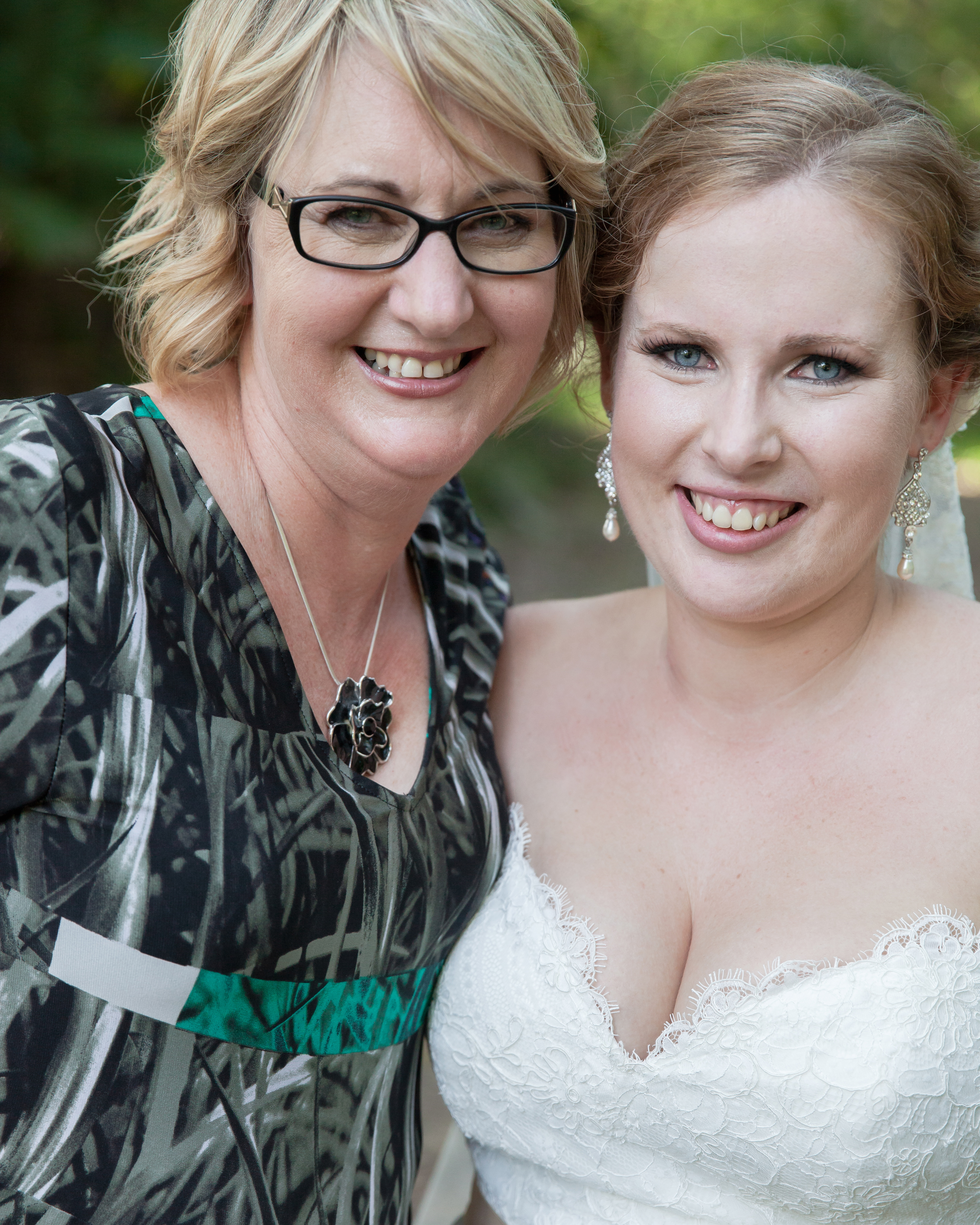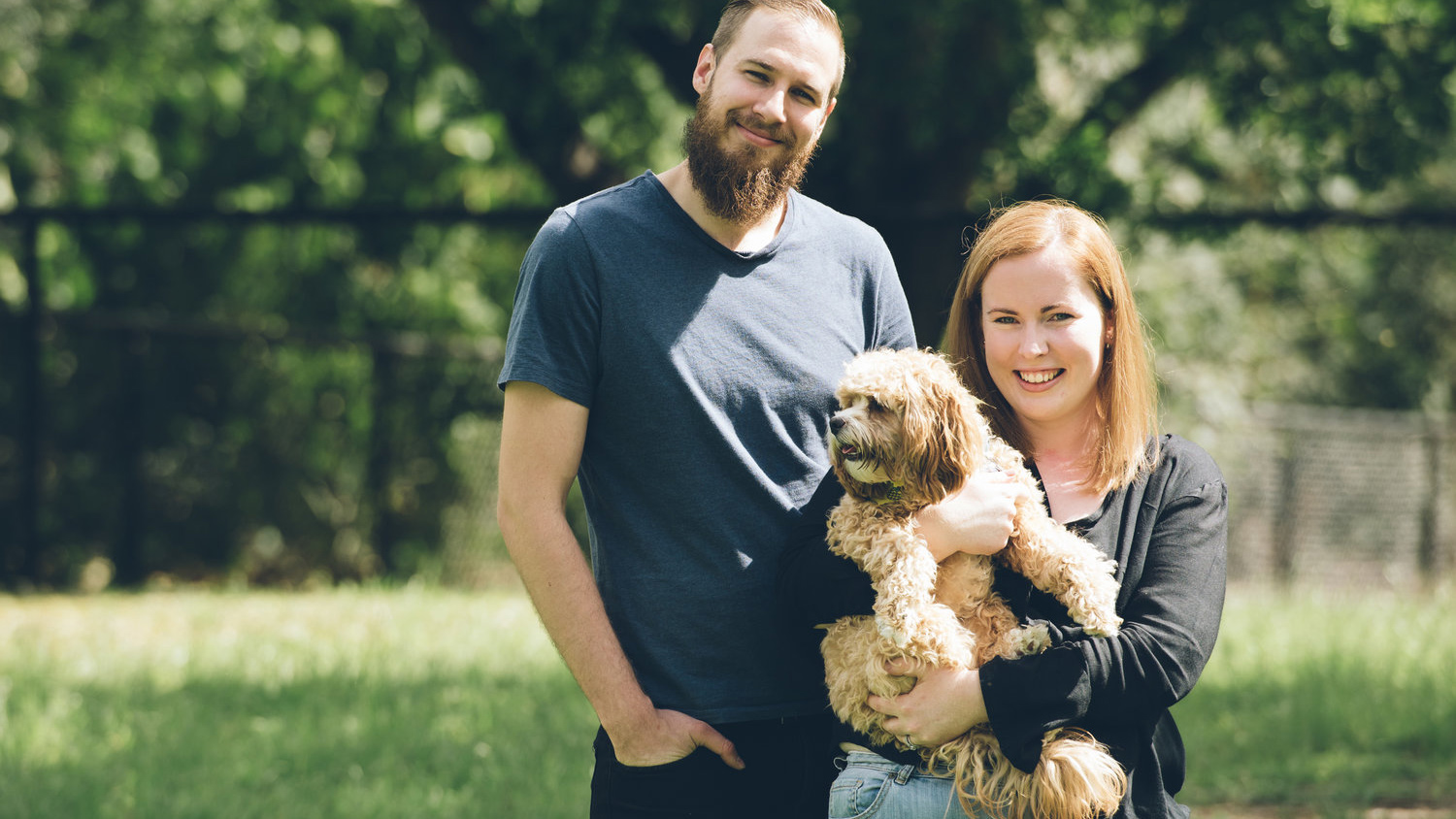Brisbane tradie Lucas Ridgway was 36 when he was told his melanoma was terminal.
What started as a small lump underneath his cheek 18 months earlier had metastasised to his lungs.
Without treatment, the father-of-two was given a 22 per cent chance of surviving another three years.
"When it becomes stage four and they say words like terminal, that's when you think, 'I'm up against it,'" Mr Ridgway said.
READ MORE: Peter Overton 'bruised and battered' after melanoma surgery

But an immunotherapy drug, Keytruda, shrank the tumours down to almost nothing and Mr Ridgway is beating the odds, racking up three-and-a-half years cancer-free.
Now, he wants to help save the lives of other Australians.
The tradie has started a campaign calling on the Federal Government to implement a national screening program for melanomas.
With one Australian dying every five hours from a melanoma, families who have lost loved ones to the deadly skin cancer also say such a program is long overdue.
"We have bowel cancer and breast cancer screening, I don't understand why there hasn't been something implemented like this for melanomas – we are the skin cancer capital of the world," Mr Ridgway said.
"I think early detection could save a lot of lives and save people going down the path that I had to go down."

An online petition set up by Mr Ridgway – which has so far attracted more than 2500 signatures – suggests Year 11 and 12 students could be given a skin check before they finish high school and then sent a yearly reminder notice.
Brisbane mum Tamra Betts lost her 25-year-old daughter Emma to melanoma in April 2017.
"Melanoma is a hideous cancer and the impact it has had on our family has been life changing," Ms Betts said.
"Emma's melanoma was only a stage one when it was diagnosed. Twelve months later it went to stage three and then within a month it went to stage four, which is terminal."

Mrs Betts said while there were already programs to educate school students about sun safety, a melanoma check offered for school leavers would help increase awareness and potentially form a life-long habit of getting regular check-ups.
"If there was a screening program where Year 11 and 12 students could get their skin checked it would put into their minds the importance of it. Then hopefully going forward they will actually do that every 12 months," she said.
However, such a program would need to be funded through a Medicare rebate to make it affordable for families, she said.
Each year, about 15,000 people are diagnosed with a melanoma and about 1500 will die, according to data from the Australian Institute of Health and Welfare.
It's Australia's third most common cancer, and the most common for cancer for 15 to 28-year-olds.
However, both the Federal Government and Cancer Council Australia have so far rejected calls for a melanoma screening program, citing a lack of evidence about whether it would reduce mortality rates.
"The Population Based Screening Framework guides the planning of any new cancer screening programs by the Commonwealth, states and territories," a Department of Health spokesperson said.
"The framework identifies the need for a strong evidence base on the safety and accuracy of screening tests and the efficacy of treatment. It also includes a requirement that screening programs offer more benefit than harm to the target population."
Cancer Council Australia released a position statement about melanoma screening in 2014, and still holds the same viewpoint seven years on.
"Observational studies have shown the benefit of screening for melanoma, however due to lack of high-level evidence showing a reduction in mortality from melanoma, population screening programs for melanoma are not recommended," Cancer Council Australia says on its website.
A Federal Government inquiry into skin cancer in Australia was held in 2015. It concluded a screening program for melanomas would be prohibitively expensive and possibly not reduce mortality rates.
However, it noted there had only been one Australian trial on the effectiveness of screening, which was never completed.

Queensland dermatologist and skin cancer specialist Michael Stapelberg told nine.com.au the research which found screening programs did not reduce morbidity or mortality for melanomas was now "quite dated", adding further studies were possibly needed.
While a screening program was a good idea in theory, it could be difficult to implement because of a shortage of doctors who are specially trained to detect skins cancers and use the equipment needed to diagnose melanomas, Dr Stapelberg said.
"In Australia, there are less than 1000 dermatologists who work on skin-related issues. However, most of them work in private practice, they generally have a waiting time to see them and charge too much," he said.
In recent years, more GPs had been able to get training to sub-specialise in skin cancer medicine and detection, however not all had the training necessary to detect skin cancers properly.
"Some GPs are excellent at picking up skin cancers because they have had adequate training but others aren't," he said.
The most important thing when it came to getting a skin cancer check was to go to a doctor with the right training, Dr Stapelberg said.
People should look for a doctor accredited by the Skin Cancer College of Australasia or who had completed a University of Queensland skin cancer medicine master's degree, he said.
Mr Ridgway said if there were not enough doctors qualified to conduct skin checks then this needed to be urgently addressed.
"Given how many melanomas are diagnosed in Australia every year it doesn't make sense, how can we not have enough clinicians trained up," he said.
Contact reporter Emily McPherson at emcpherson@nine.com.au.
from 9News https://ift.tt/3ajAPTo
via IFTTT


0 Comments